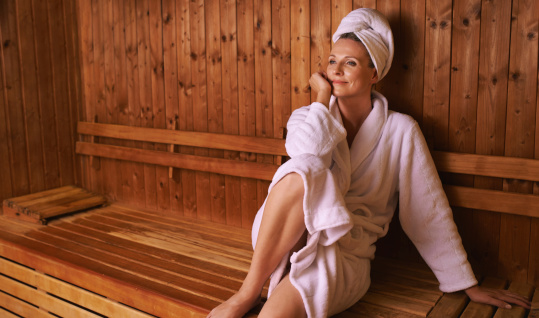The various health benefits of saunas Most people go to the sauna for a dose of calm or even to ease some aches and pains, but if you knew the full extent of their benefits, you probably would move in. Sauna benefits for health, fitness, and muscle recovery Get ready to fuel your workouts, improve your health, and speed up muscle recovery. Dry heat rooms, which have been used for hundreds of years in communities in Finland and Sweden, have some serious health benefits, like lowering the risk of high blood pressure, improving lung function, and have proven benefits for cognitive health.

The scientific basis for heart health has been established for a long time. In fact, a review of 40 studies with 3,855 participants published in the journal Evidence-Based Complementary and Practice of Medicine found that regular sauna use cut the risk of overheating from an attack by 63%, improved arrhythmia (irregular heartbeat), and reduced the size of megalocardia in people with congestive coronary failure. Research shows they’re really great for mental well-being, as well, with one review revealing a 66 percent decrease in dementia risk.
Saunas are great news for fitness because they increase workout time after a heat session, improve oxygen saturation during exercise, and even boost the mitochondria, your powerhouse cells, by 28%. Increase these undeniable advantages for pain relief and post-workout recovery, and you’ll see that going to the sauna might be a good addition to your training plan.

How saunas work: Typically housed in small wood-paneled cabins, saunas provide dry heat at temperatures ranging from 65°C to 90°C. A woman sits back and unwinds in a very dark wooden sauna, enjoying the health and fitness benefits and muscle recovery benefits. Your sympathetic system, also known as the “fight or flight” response, activates alongside other mechanisms when you are exposed to extreme heat. As a result, your vital signs, blood flow, and sweating increase in an effort to regulate your temperature. You feel more alert and less sensitive to pain as your muscles relax.
The results include less oxidative stress and inflammation at the cellular level. Additionally, it is believed that similar to exercising, the body’s functionality and/or tolerance to more severe challenges are enhanced by the heat and stress it experiences in a sauna. Last but not least, adding essential oils to the air has added benefits. Eucalyptus, for instance, can help clear the airways, and pine can make you feel reenergized and refreshed.
Try sauna therapy for yourself You probably already know to drink a lot of water to make up for lost fluids. However, there are a few additional considerations when using a sauna. Due to its effects on dehydration, do not consume alcohol prior to or during a session.

Additionally, sessions should not exceed ten minutes in length (most people attend two or three sessions simultaneously). Return to sitting lower down for the final one to two minutes of your session if you are lying on the upper benches, where the temperature is higher, to acclimate your body to being vertical before heading to a cool shower or plunge pool.
At the leading sports and active leisure resort Club, la Santa in Lanzarote, WF editor Sarah Sellens tried a “saunagus.” Before spreading heat throughout the sauna, a “bus master” placed ice infused with essential oils on the new stones. According to Sellens, “the wafts of aromatic heat that swept over me felt deeply therapeutic.” The duration of each block of sauna time was seven minutes. This was then trailed by a discretionary dive into the ice pool or swim to chill down. And keeping in mind that it sounds extraordinary, I don’t think I’ve at any point felt so restored.’





